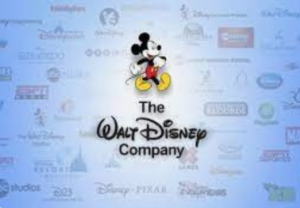Good NEWS: ESG and The Changing Purpose of the Corporation

There is More Good News in the World Than Bad
Ever since the modern business corporation was first invented many hundreds of years ago, both the stated and unstated purpose of the corporation has been to maximize profits for the shareholders. While there has been some deviation from this, it is still the mantra for a large percentage of the business world.

In fact, this concept has been widely championed by renowned, economist free enterprise expounder and Nobel Prize winner Milton Friedman.
His pronouncement in 1970 that THE SOCIAL RESPONSIBILITY OF BUSINESS IS TO INCREASE ITS PROFITS became known as the FRIEDMAN DOCTRINE. While Friedman was most popular in the 70s,80s and 90s, his views still carry a lot of weight.
There are many who disagree with this view of the purpose of a corporation, including me. I have always felt uncomfortable about it. For me it is too self-centered and ignores other stakeholders including employees, customers and the community. It also can legitimize and lead to considerable unethical behaviour, all in the name of making money.
Others who disagree include many politicians who often blame high prices on the excess high profits of greedy companies, as do many of the general public. Witness the current hue and cry from the general public, who blame the excessive profits of oil and food companies as the cause of inflation.

Over the years, this overpowering drive for profits, greed and making money was a major contributor to the Great Depression in the 1930s, and more recently the Great Recession 2007-2009.
The unethical behaviour that often resulted from this striving for profits, among other things, has resulted in terrible pollution of lakes, rivers, oceans, forests and skies. The mistreatment of employees has given rise to the introduction of government regulations, the birth of unions and the rise of alternate political systems including socialism and communism.
It has also left a legacy and the cynical view that money can buy anything. In fact, particularly in the United States, it still buys considerable political and financial influence. It is though, unfair and inaccurate to suggest all businesses operate in this fashion.
Over the years there has been a lot of positive corporate involvement in social issues and many entrepreneurs and shareholders have made huge contributions to their communities and society.
Furthermore, corporations and the free enterprise system for hundreds of years has been the driving force behind the growth of our economies and the creation of jobs, resulting in a higher standard of living for most of the world.
Some examples of major contributors to our communities include:
- In the early 1900s, Andrew Carnegie, the founder of U.S. steel and once the richest man in the world gave much of his massive fortune ($5.5 billion in today’s dollars ) to charities, including building libraries in Canada and the U.S. so all could afford access to books. Some critics, however, will say this was so his legacy would be that of a philanthropist and not an unscrupulous businessperson.

- In Canada, the Weston family has given 100s of millions to various charitable causes including the purchase and conservation of bio-diverse land through The Nature Conservancy of Canada
- Every day we learn of another rich person making a multi-million dollar donation to a hospital, university or educational initiative. Peter Gilgan and the Mattamy Corporation are one example and the Daniels’ Corporation and its founder John Daniels (who passed away recently) are another. Both of the owners were quality developers as well as major donors.
- A former president of a major oil company once told me he spent more than 50% of his time doing charitable work, much of it on Boards.
- Corporations are a go-to source for virtually every charity in Canada with banks being the most popular.
What is fast developing is a major movement to redefine the purpose of a business, partly because the structure of the corporate world is changing and also due to the many issues facing humanity today
 Out of the World Economic Forum in 2016 came the Davos Manifesto, which embraced stakeholder involvement, ESG principles (environmental, social and governance), the abandonment of shareholder primacy and adoption of stakeholder governance. This definition has been embraced by big investment firms including Black Rock, State Street and Vanguard.
Out of the World Economic Forum in 2016 came the Davos Manifesto, which embraced stakeholder involvement, ESG principles (environmental, social and governance), the abandonment of shareholder primacy and adoption of stakeholder governance. This definition has been embraced by big investment firms including Black Rock, State Street and Vanguard.
An increasing number of companies are adopting these principles while defining their corporate mission, purpose and actions including:
- The Telus Corporation who give over $90 million per year to over 500 charities and are very proud of the 1.6 million volunteer hours their employees have contributed since 2000. Their stated purpose is “to use their world leading technology to drive meaningful change from transforming health care to making our food supply more sustainable to reducing our environmental footprint and connecting Canadians in need.”
- The Export Development Corporation understands the importance and benefits of this shift in purpose. They recently stated in The Globe and Mail, “Many small and medium sized enterprises are increasingly recognizing their ESG practices will make them more competitive in today’s business environment.”
- Major banks have established environmental standards borrowers must meet these standards before the banks will lend them any money. This includes fossil fuel companies.
- Apple Computer has made a huge commitment to alternate energy and the importance of getting to net zero. They just announced they are building alternate energy companies in Europe – enough to offset the negative impact of the energy consumed by Apple users in Europe. A large number of their suppliers are committed to operating on 100% renewable energy.

- The Walt Disney Company has spoken out about the “Don’t Say Gay” bill in Florida, albeit a bit late after it became law instead of trying to prevent it
Many companies have set up departments to work with and employ Indigenous Peoples. Others, like Telus, encourage employees to volunteer and match employee donations to charities.
I recently heard of one small business owner who was burned-out and bored with his business. His financial advisor asked him if there were a cause he felt strongly about. He said he would love to build schools in Africa so all could have an education.
He is now focused on raising money through his business to do this. As a result, sales and profits have substantially increased.
 Indexes have been created for investors to measure a company’s social involvement. The MSCI (Morgan Stanley Capital International) index has been around for 30 years, and major consulting companies are helping companies develop their missions and their ESG practices. What is also exciting about this is companies are less bureaucratic and more efficient than government, have money and can move quickly on social issues.
Indexes have been created for investors to measure a company’s social involvement. The MSCI (Morgan Stanley Capital International) index has been around for 30 years, and major consulting companies are helping companies develop their missions and their ESG practices. What is also exciting about this is companies are less bureaucratic and more efficient than government, have money and can move quickly on social issues.
In some ways this development is not new. Many companies have known for many years being involved in one’s community is good business. I for one applaud this growing ESG movement How about you?*
Till next time,
Chris Snyder **
* If you wish to take action, you can support businesses who have ESG policies and actions either by using their products and services or praising them for their commitment to a better world. If they do not, encourage them to start thinking about developing ESG policies and practices. If you have your own business, develop your own ESG action plan.
** I would love to hear your views: chris@eccgroup.ca
Please pass this blog on to anyone who might be interested.
Reading 2: Great Books
You May Also Like

Saying Positive and Supportive Things to Others
August 13, 2023
Getting Along and the Golden Rule
July 31, 2022